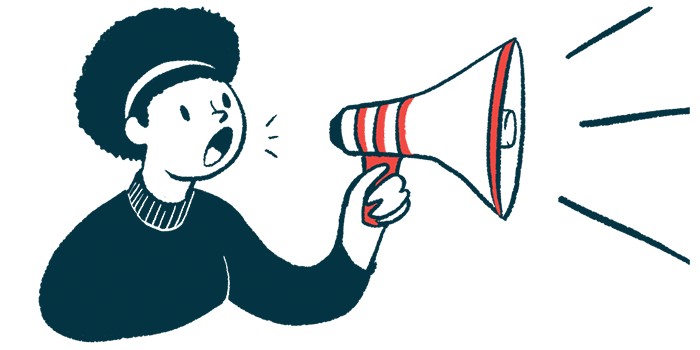Group Seeks Addition of DMD to US Newborn Screening Panel
Written by |

Using the results of a New York State pilot testing program as evidence, Parent Project Muscular Dystrophy (PPMD) submitted its proposal seeking the addition of Duchenne muscular dystrophy (DMD) to the nationwide newborn screening panel.
The proposal nominates DMD for inclusion in the Recommended Uniform Screening Panel or RUSP — a list of diseases that the U.S. Department of Health and Human Services (HHS) recommends states test babies for as part of their newborn screening programs.
It was submitted to the Advisory Committee on Heritable Disorders in Newborns and Children (ACHDNC).
“Having a disorder be added to the RUSP shows that there is clear evidence of benefit to the babies and their families for newborn screening of that condition,” PPMD said in a press release announcing the submission, noting that the two-year New York pilot screening provided that evidence.
“While every state chooses which diseases are included in that state’s newborn screening panel, many states use the RUSP to guide their decisions,” said Niki Armstrong, PPMD’s newborn screening program manager.
“Most states also have their own separate process for evaluating which disorder to add, and some states may choose to screen for diseases even if they are not on the RUSP,” she added.
Newborn screening is performed soon after birth, using a small sample of blood taken through a heel stick. Families with babies identified as having or carrying a disease are then able to access genetic counseling and potentially get an early start on treatment — when it is more likely to be effective.
On average, families wait at least two years to get a diagnosis of Duchenne for their child. Such lengthy waits carry uncertainty and concern, and delay needed treatment for the children.
“This is a hopeful time in Duchenne therapy development. We have a robust experimental therapy pipeline targeting multiple physiological pathways,” said Pat Furlong, founding president and CEO of PPMD. “Yet therapeutic interventions are likely to be optimally effective the earlier they can be offered.”
“Newborn screening is the most effective way to ensure that infants with Duchenne are diagnosed early, when therapies will likely be the most beneficial,” she added.
The proposal’s submission comes on the heels of PPMD’s Newborn Screening Pilot program in New York, which was completed in October 2021. Over about 24 months, more than 36,000 babies across the state were screened for muscular dystrophy.
By the end of July, 34 newborns registered significantly high levels of creatine kinase, a sign of muscle damage that can indicate a muscular dystrophy. Additional testing later confirmed Duchenne or Becker muscular dystrophy in four of these babies. A fifth child, a girl, was confirmed to be a carrier. This meant that she would not have the disease but carried a disease-causing mutation that could be passed to her children.
“We know that there are families where the process has taken much, much longer and that where a person lives and where they get care also influence this,” Armstrong said.
“Individuals with Duchenne who are diagnosed at older ages have less benefit from approved therapies and fewer opportunities to participate in research and clinical trials,” Armstrong said, adding, “Newborn screening is universal, which means it is equitable — it will ensure every baby is identified in time to consider treatments or participate in clinical trials.”
The New York pilot was funded and led by PPMD along with a group of Duchenne industry partners. It was guided by a steering committee that included representatives from healthcare professional groups, expert clinicians, and Duchenne stakeholder communities.
Adding data and expertise to the RUSP nomination package were a pilot study in North Carolina — called Early Check — and a DMD newborn screening program in Boston. Early Check is ongoing and tests babies up to 4 weeks old. The Boston screenings were launched as a partnership between CureDuchenne and Brigham and Women’s Hospital in Massachusetts.
Developing a nomination package is a laborious task that requires evidence from all therapies available. The efforts of experts in Duchenne, newborn screening, and pediatrics in the last year were fundamental for the proposal’s submission, according to PPMD.
“We are exceptionally grateful to the families, experts, and partners who have helped us to get to this point in our newborn screening efforts,” said Furlong. “Obviously no one wants their child to be diagnosed with Duchenne muscular dystrophy, but I am a firm believer that knowledge is power in our fight to end the progression of this fatal disorder.”
Furlong noted that inclusion in RUSP would enable Duchenne newborn testing to be performed across the country — “resulting in early diagnosis, early intervention, and most importantly, the best possible outcomes for these babies.”
Duchenne’s nomination to the RUSP was co-sponsored by the Muscular Dystrophy Association (MDA).
“Today’s nomination of Duchenne muscular dystrophy to the newborn screening Recommended Uniform Screening Panel represents a huge step forward in accelerating diagnoses and access to care for the DMD community,” Paul Melmeyer, vice president of public policy and advocacy, said in an MDA statement. “MDA will continue to collaborate with our co-nominators, patient advocacy partners, and the entire Duchenne clinical and research community to make the promise of nation-wide newborn screening a reality.”
The ACHDNC will review the application, which includes assessing the availability of an effective newborn screening test in Duchenne as well as the ability of state laboratories to do the screening. Evidence on available therapies and the need for treatment among young children with Duchenne also will be evaluated. The review process typically takes at least one year.
If Duchenne is added to RUSP, each state will still evaluate its implementation.
“Advocacy at the state level will be important to PPMD’s ongoing NBS efforts to promote implementation within each state,” said Armstrong.






